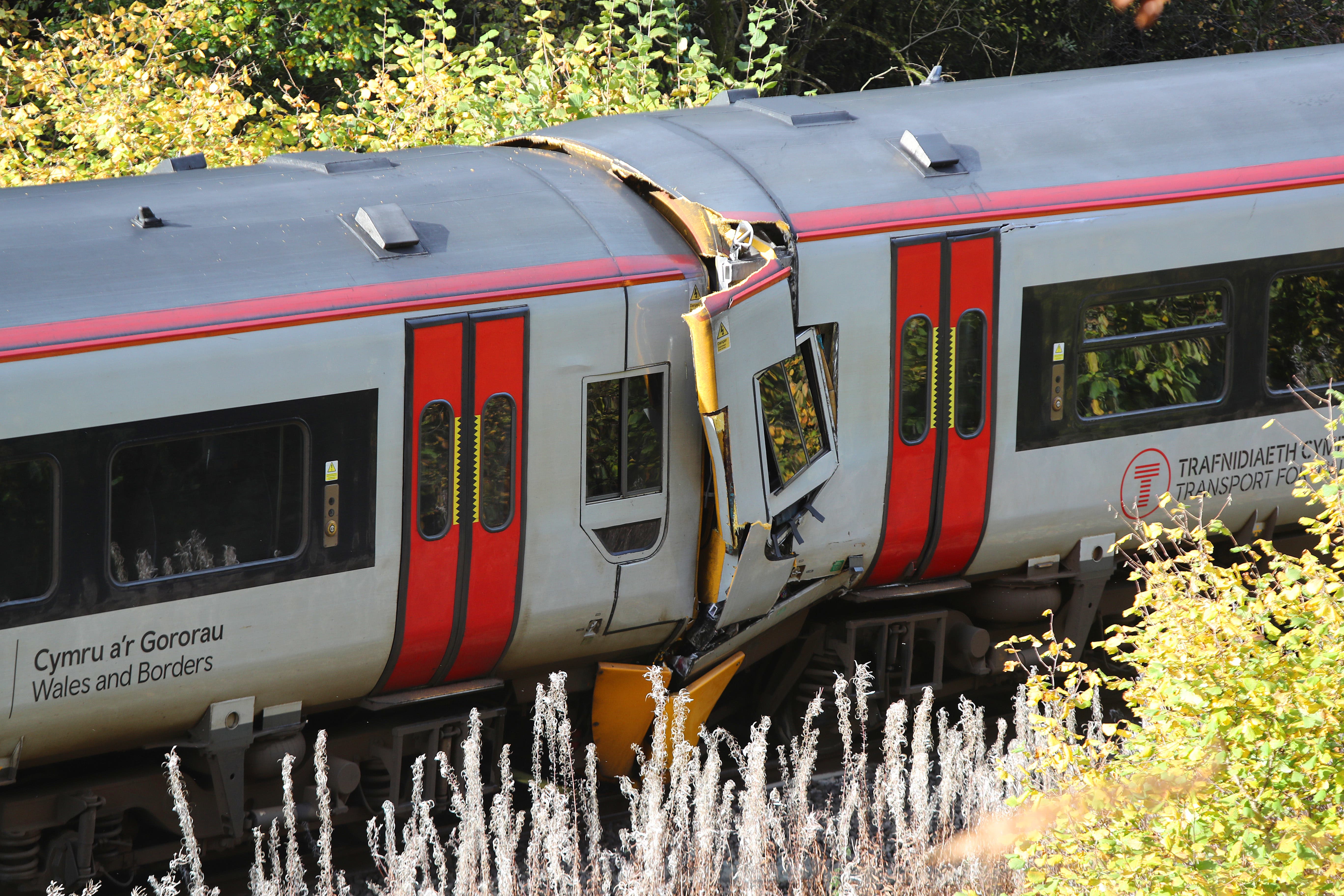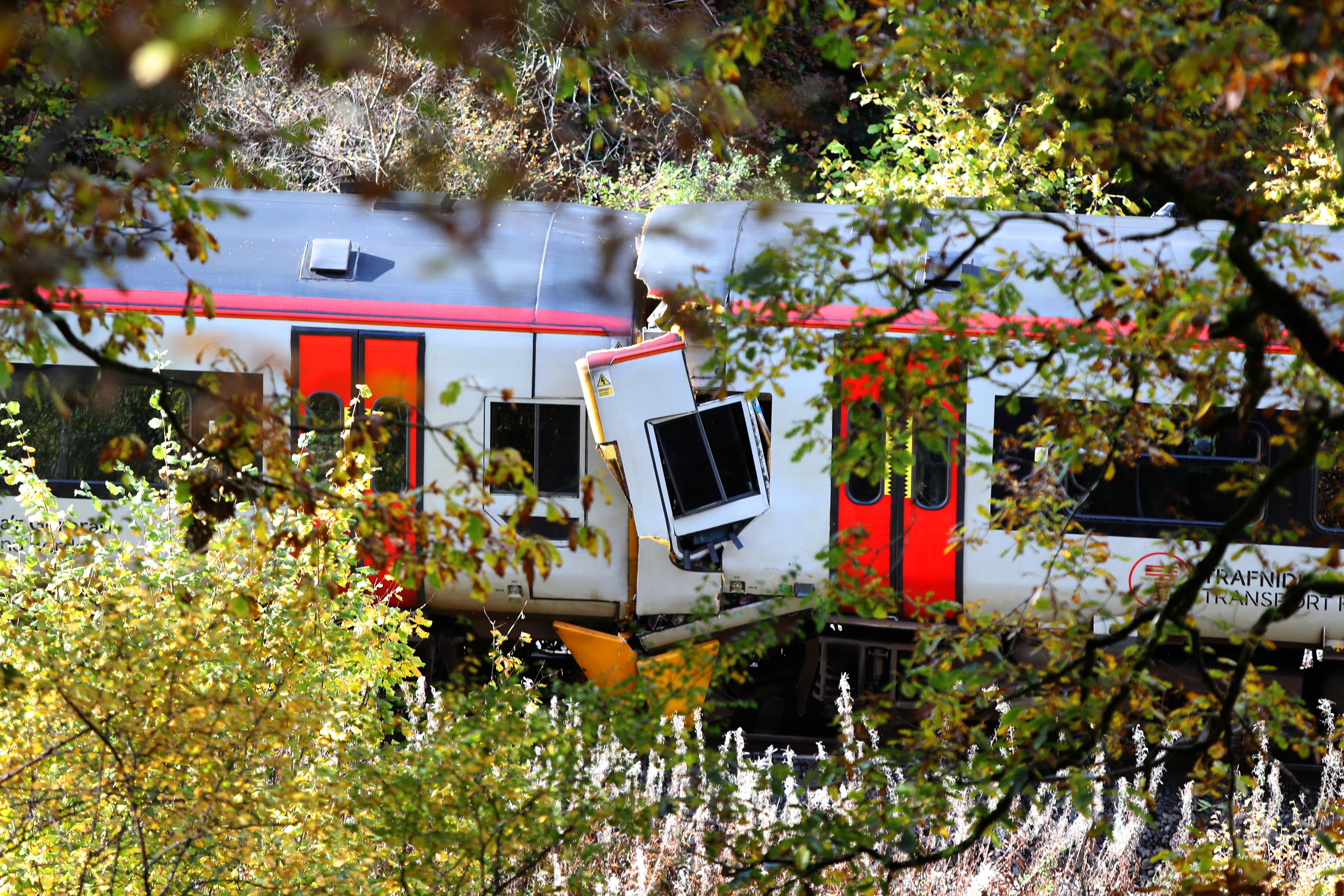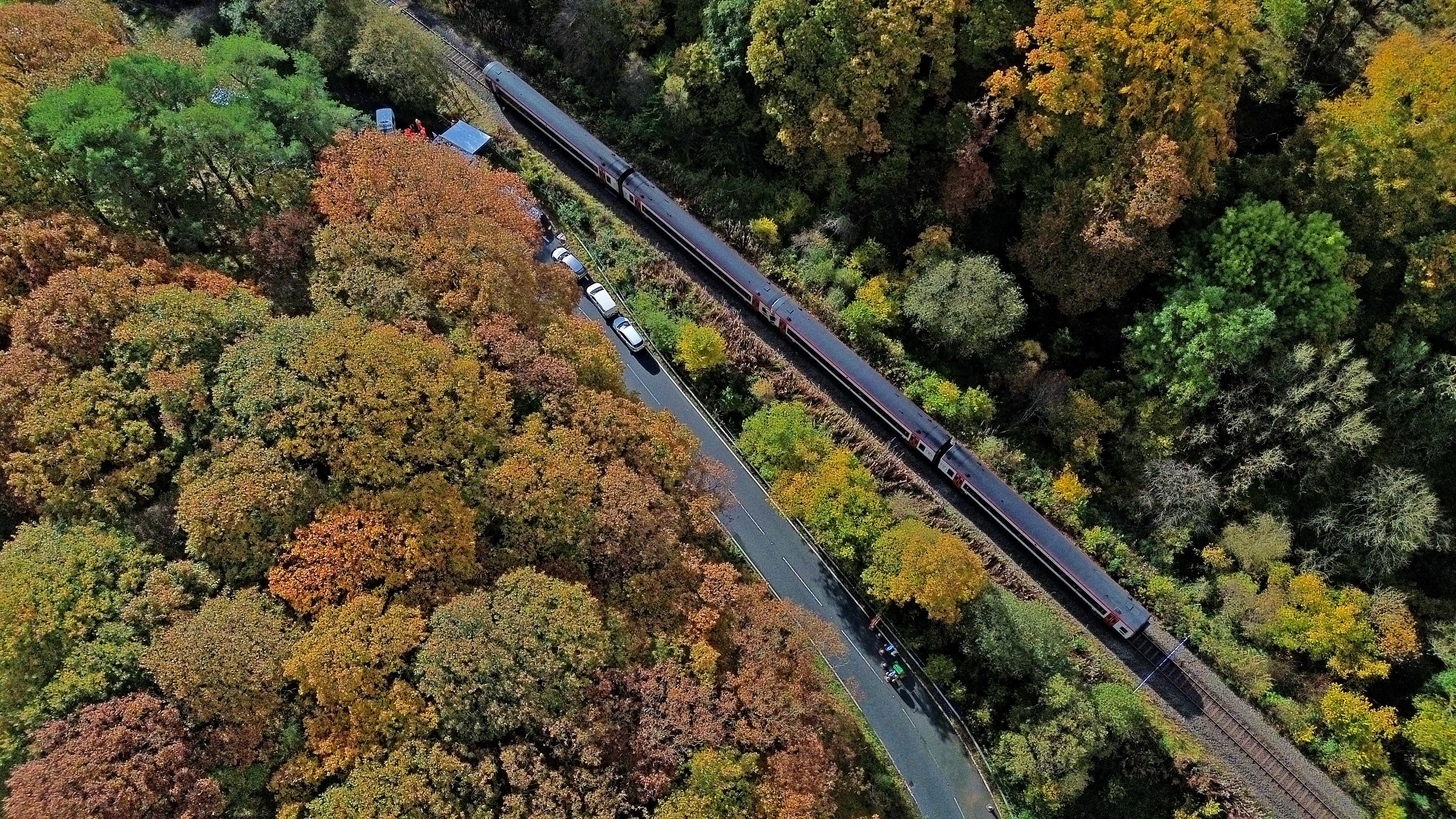Train safety system failed in moments before crash in Wales
The collision occurred when an automated system which helped the train grip the tracks failed

Your support helps us to tell the story
From reproductive rights to climate change to Big Tech, The Independent is on the ground when the story is developing. Whether it's investigating the financials of Elon Musk's pro-Trump PAC or producing our latest documentary, 'The A Word', which shines a light on the American women fighting for reproductive rights, we know how important it is to parse out the facts from the messaging.
At such a critical moment in US history, we need reporters on the ground. Your donation allows us to keep sending journalists to speak to both sides of the story.
The Independent is trusted by Americans across the entire political spectrum. And unlike many other quality news outlets, we choose not to lock Americans out of our reporting and analysis with paywalls. We believe quality journalism should be available to everyone, paid for by those who can afford it.
Your support makes all the difference.An automated system that helps train wheels grip tracks failed on a train involved in a fatal crash in mid-Wales, the Rail Accident Investigation Branch (RAIB) said.
One passenger died while four other people were seriously injured in the crash on 21 October, and a further 11 required hospital treatment.
David Tudor Evans, 66, was killed while travelling on the westbound service from Shrewsbury when it crashed into a stationary service close to the village of Llanbrynmair, near Powys.
The investigation found the train was fitted with a system which discharges sand automatically via hoses when it detects the wheels are sliding during braking.

This is intended to increase friction between the wheels and the tracks.
The RAIB said an inspection of the train after the accident showed the sanding hoses on the leading vehicle of the train were “blocked and apparently unable to discharge sand”.
Anthony Hurford, a passenger on the Shrewsbury-bound train, told the BBC he felt “pretty shell-shocked” by the collision.
“The word that keeps coming to my head is just brutal really,” he said.
“Just going from, I don’t know how fast we were going, maybe 40, 50, 60mph (64-96km/h), to nothing in the blink of an eye.”
Both trains involved in the crash were two-carriage class 158 units with the train that suffered the failed sanding system travelling west to Aberystwyth.

It was supposed to stop inside a loop to allow an eastbound train to pass on the single track.
Initial analysis of the on-board data recorder shows the driver applied the brakes as the train neared the loop, during which time the wheels began to slide.
Around 40 seconds later, the driver made an emergency brake demand, which remained in place until the crash.
The train passed through the loop and rejoined the single line, sliding for around 900 metres downhill before the collision occurred.
A close family friend of Mr Evans previously accused the British Transport Police (BTP) – who are investigating the incident – of failing to support the family, with the force issuing an apology last Thursday.
The force put out a statement on 22 October saying “the deceased’s next of kin have been informed and his family are being supported by specialist officers”.
However, a specialist officer from the BTP only visited the family on 23 October. A family friend had said: “The fact is that on the night in question, she (Rachel Evans, Mr Evans’ wife) was pretty much left to her own devices, support wasn’t adequately provided at the time.”
BTP superintendent Andrew Morgan apologised for the earlier statement and said: “We would like to apologise for a miscommunication issued shortly after the train collision which took place on Monday 21 October in Llanbrynmair.
“British Transport Police has apologised directly to the family of the deceased in relation to this statement and would like to apologise publicly for any additional suffering caused at this extremely difficult time.”
Join our commenting forum
Join thought-provoking conversations, follow other Independent readers and see their replies
Comments